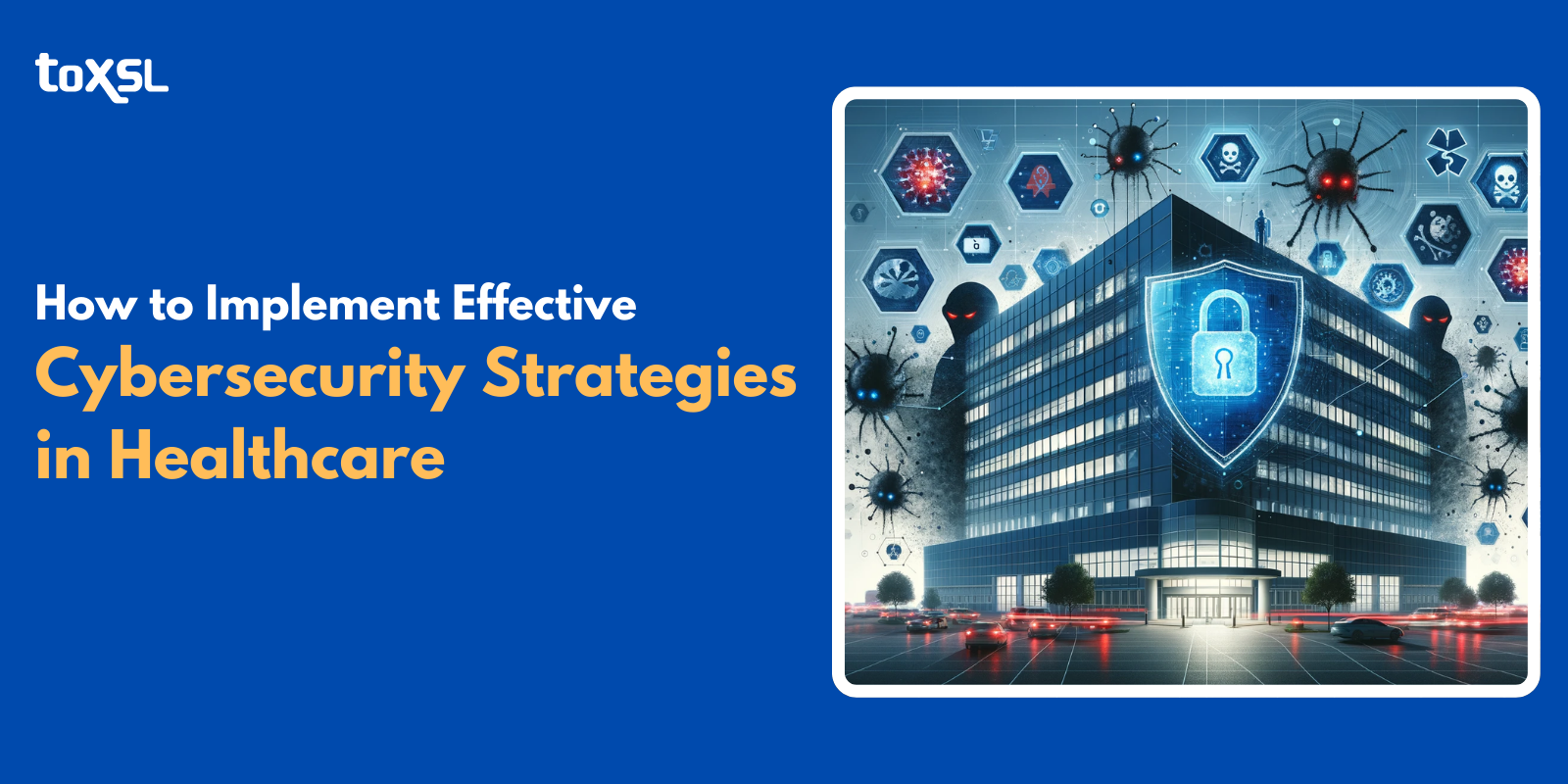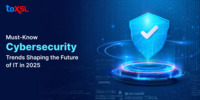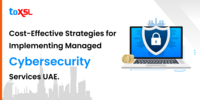- Nov 08, 2024
- Cybersecurity
- 1599
Share this post on:

Today, healthcare has become the prime target for cybercriminals due to the large amount of sensitive data. The sector has adopted latest technologies such as electronic health records (EHRs), telemedicine, and the Internet of Things. However, these technologies offer huge benefits to the healthcare sector but make it vulnerable to cyber attacks.
In 2023, for the 13th consecutive year, healthcare remains a top target for online breaches. Surprisingly, healthcare data breaches are among the most expensive types of breaches. The average cost of data breaches across all industries is approximately $4.45 million, while healthcare breaches stand highest among all at $10.93 million. Moreover, over the past three years, healthcare has experienced a significant cost increase of 53.3%.
Furthermore, healthcare data is valuable and always at the target of cybercriminals. But, with the right tool, the healthcare industry can take steps towards better data protection. Now, let us dive deep into the blog and learn about the impact of cybersecurity in healthcare.
Consequences of Cyberattacks on Healthcare
Healthcare cybersecurity refers to the practice of protecting the healthcare infrastructure and sensitive patient data from unauthorised access using robust strategies and innovative technologies. Cyber attacks can affect the healthcare sector in various ways, leading to disastrous effects for the institute as well as people’s lives. This is a very critical sector and cyber threats need to be addressed as soon as they happen. Let us discuss how cyberattacks can affect the healthcare sector:
Patient Safety: When a cyberattack happens, the major impact is seen on people’s lives. A compromised system can create harmful impacts on patients as well as healthcare businesses. For instance, if a hospital’s electronic healthcare system is compromised, authorised individuals won’t be able to access patients’s data, making it tough for clinicians to diagnose properly.
Data Breaches: Cyberattacks target patients’s sensitive data, including medical history and other confidential data. This can cause major harm to patients in many ways, making it a necessity for businesses to opt for cybersecurity services.
Operational Disruption: The modern healthcare system is very complex and the machinery used is highly robust and expensive. A cyberattack can halt everything from routine appointments and regular check-ups to major surgeries. This not only affects patient care but also harms research, office work, and the supply of medical materials, leading to further problems in healthcare services.
Financial disruption: Once systems are attacked, recovering data is not easy. After an attack, healthcare organisations deal with financial and other critical issues, such as losing data and expenses for repairing their systems. This doesn’t end here. Such attacks may lead organisations to face lawsuits from patients or others affected by the attack, adding to their financial problems. Furthermore, healthcare institutes can lose their reputation, which can make people trust them less, causing them more financial losses.
Also Read: The Ultimate Business Guide to Healthcare Application Development
Benefits of Cybersecurity in the Healthcare Industry
Now that we have discussed the consequences of cyber attacks on healthcare, But do you know that opting for better cybersecurity practices in the healthcare industry can benefit the industry in many ways?
Reduced Risk of Medical Errors: Did you know that in 2017, 96% of hospitals adopted certified electronic healthcare records (EHRs)? EHR provides an electronic version of a patient’s medical history, including demographics, progress notes, medications, and more. But without cybersecurity, EHRs can be at risk. If compromised, these records can affect authorised individuals’s access to patients’s data, and without EHRs, medical errors can occur. These doctors and nurses can accidentally give patients the wrong treatment because they don’t have all the important information about the patient. Hence, improving cybersecurity can help protect electronic health records (EHRs) and stop these mistakes from happening.
Improved Patient Privacy Protection: Medical professionals have to follow the privacy rules and regulations, as the data they are dealing with is highly sensitive. If a cyberattack happens at the hospital, this can lead the doctors and hospital into a disastrous situation. Not that; hospitals may have to face legal trouble. Hence, hospitals have a duty to keep patient information private, so they must protect digital records. However, many hospitals use tools like anti-malware, but they still need better security. By using cybersecurity, hospitals can gain confidence in their patients that their personal information stays safe and private.
Safer Technology Adoption: Nowadays, we live in a world where cybercrimes are constantly increasing and hospitals are afraid to adopt new technology and are hesitant to implement due to the increasing vulnerabilities. Hence, if cybersecurity is high and robust in hospitals, the healthcare industry will move towards faster and safer technology adoption. For example, if hospitals didn't have to worry about keeping their endpoints secure, they could benefit greatly from new technology. Hospitals use a lot of energy, about 194 trillion British Thermal Units (BTU), which shows the need for newer, more energy-saving devices. Internet of Things (IoT) technologies can also help hospitals solve these energy issues, but they first need to improve their cybersecurity.
Faster Patient Care: Better cybersecurity in healthcare helps doctors treat patients in safer, private, and faster ways. When electronic health records (EHRs) work well, doctors can start treating patients sooner. However, if there are disruptions, it can delay care. A report says that 72% of healthcare providers have reported delays due to network problems. However, even a smaller cyberattack can slow down a hospital's network. Hence, hospitals need reliable and fast cybersecurity tools to keep their EHR systems running smoothly.
Implementing Best Practices for Cybersecurity
To build robust healthcare systems, businesses must implement robust cybersecurity practices. Let us now dive deeper and learn about the best practices for cybersecurity that can safeguard your healthcare business:
Implement Multi-factor Authentication: By using extra layers of security, such as passwords, and adding additional verification steps to access sensitive systems and data, you can help enhance security.
Regular Software Updates: Make sure all software, including medical devices and electronic health record (EHR) systems, is updated with the latest security fixes.
Regular Security Training: Ensure that you offer training to the healthcare professional and they understand phishing attempts and don’t indulge in risky behaviour.
Encrypt Sensitive Data: Use strong encryption methods to protect patient information when it is stored and when it is being sent. This helps keep the data safe from unauthorised access and breaches.
Access Controls: Follow the principle of least privilege by giving access rights only to people who really need them. Also, regularly check and change these access permissions as needed.
Develop Incident Response Plans: Make detailed plans for how to respond to security breaches and regularly practice these plans with simulations to make sure everyone is prepared.
Conclusion
In this blog, we discussed deeply the impact of cybersecurity in healthcare. But, now that we know the challenges, benefits, or best practices regarding cybersecurity, it doesn’t guarantee the overall safety. With the advancement in technologies and as the healthcare sector dives deeper into the digital realm, the stakes are high. It’s not only about the healthcare business; it’s also about the lives of people. Being one of the highly sensitive areas, ensure that you are opting for the highly secure and trusted cybersecurity services.
We at ToXSL Technologies are highly considerate about the safety of businesses, providing highly secure and reliable cybersecurity services to our clients globally. We have more than 12 years of experience in business, making us the most trustworthy software app development company in the IT industry.
So, if you are worried about the cyberattacks and looking for the trustworthy cybersecurity service providers in the industry, you are at the right place. Our developers have helped numerous businesses safeguard them from cyberattacks, helping them enhance their revenue with safety. So, why wait? Get in touch with our developers and learn how our cybersecurity app services can help you protect and enhance your business.
Frequently Asked Questions
1. Why should businesses choose ToXSL’s cybersecurity services?
ToXSL Technologies offers a comprehensive approach to safeguarding sensitive data. We have expertise in identifying vulnerabilities and are committed to staying ahead of evolving cyber threats. Our cybersecurity services include risk assessments and incident response planning to ensure robust protection against cyberattacks.
2. How do businesses hire cybersecurity services?
To hire cybersecurity services, businesses should follow these steps:
• Understand Needs: Identify your specific security requirements based on the industry and business vulnerabilities.
• Research Providers: Look for reputable cybersecurity companies, like ToXSL Technologies, with proven track records.
• Check Certifications: Ensure that the provider has relevant certifications and expertise in cybersecurity.
• Conduct Interviews: Make sure that you are hiring the potential providers who can easily understand your vision.
• Review Contracts: Ensure that you review service agreements carefully to clarify in terms of service and liability.
3. Explain the common types of cyber threats.
Following are the common types of cyber threats:
• Malware: Malicious software is designed that disrupts or gains unauthorised access to systems.
• Phishing: It is a fraudulent attempt to obtain sensitive data through deceptive emails or messages.
• Ransomware: A type of malware that denies access to their owners, encrypts files, and demands payment for decryption.









